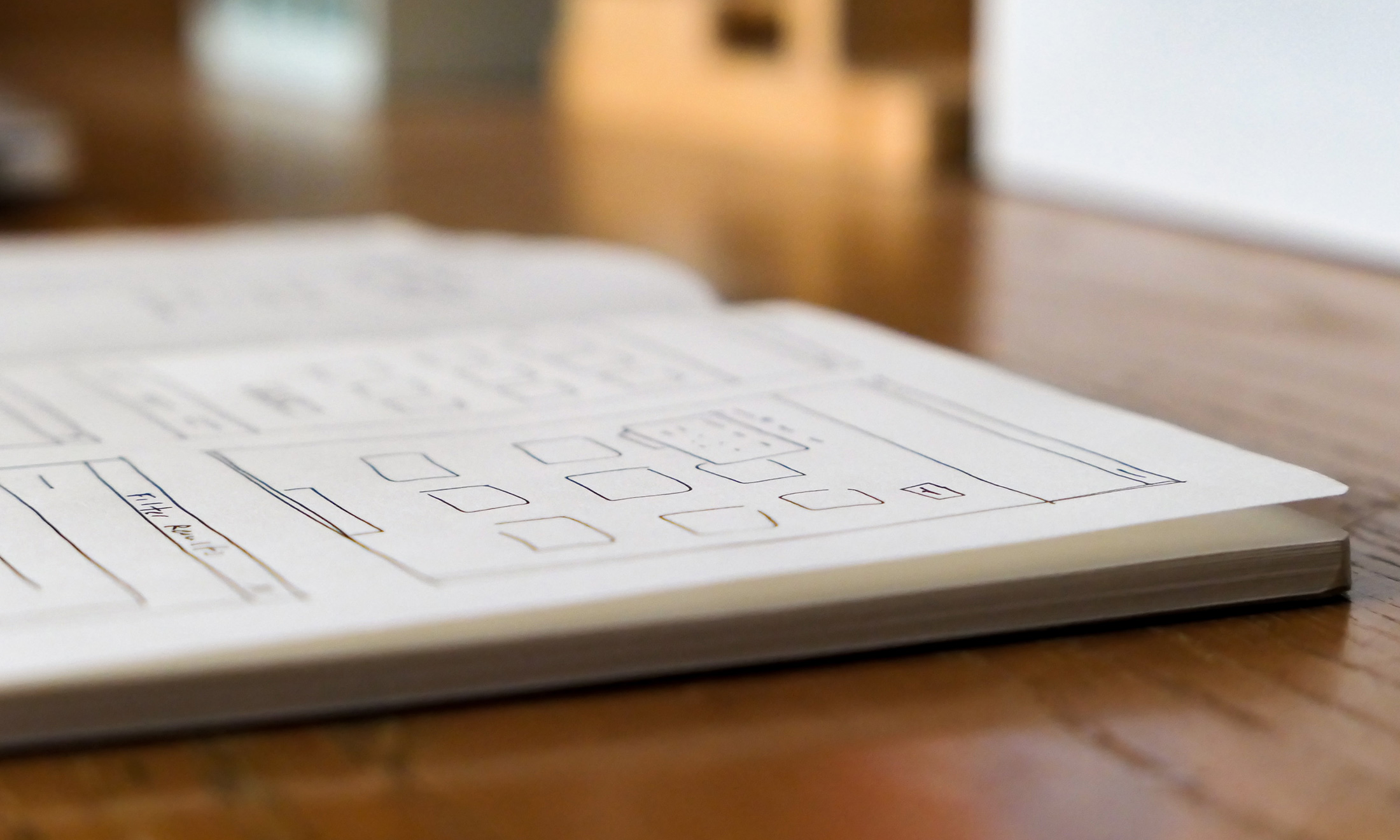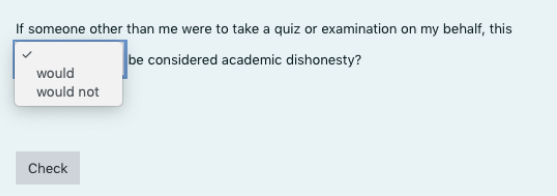Center for Excellence in Teaching and Learning
Kresge Library, Room 430
100 Library Drive
Rochester,
Michigan
48309-4479
(location map)
(248) 370-2751
[email protected]

Academic Honesty Quiz
Academic integrity is often only communicated as a policy or set of rules. Even these rules are enforced and interpreted differently based on the professor: “teamwork or no teams, tests, showing your work, partial credit… Citation? Sharing?... Consult notes or closed book? Students have to figure out in each case what the professor wants” (Blum, 2020, pp. 56-57). Rarely is academic integrity a conversation and shared understanding between students and instructors. In addition to having an Academic Integrity Pledge, an Academic Honesty Quiz engages students with academic integrity at the beginning of every course, and addresses the problem of both uploading professors’ intellectual property and dishonestly accessing material that would violate the academic honesty standards for your course. The point is to raise awareness of actions that violate the academic honesty policies, and also to emphasize to the students how important academic honesty is to you, as a professor.
Include an Academic Honesty Quiz at the beginning of every course.
This is easily accomplished in Moodle (see the Help Library section on Quizzes). The quiz should include a number of relevant questions about specific actions that would violate the academic integrity policy for your course and this institution. For example, within Moodle, this might look like:
The questions can include things like what can be shared, what can be uploaded or downloaded, what resources can be used, etc. Some other examples might include:
- If I share any quiz, examination, group project, lab report, or homework assignment with someone else, this [would or would not] be considered academic dishonesty?.
- I submit anything for our course that is not the product of my own work, this [would or would not] be considered academic dishonesty.
- If I upload or post any quiz, examination, group project, lab report or homework assignment to any social media website or to the internet (such as Chegg or Course Hero), it [would or would not] be considered a violation of copyright law.
The last question emphasizes to the students that professors have a copyright to all of the documents that they developed and gave to students.
The quiz questions should clarify specific actions that would violate course policies and academic integrity. They should serve to educate and to put students on notice that you care about honesty and integrity and that you are taking action to ensure it in your course. The quiz should be mandatory for all students, and you might want to allow repeats and require a 100% on the quiz.
A quiz like this is a manageable way to engage students in what academic integrity is and why it matters. If you can, have a follow up discussion, or allow an additional opportunity to provide main takeaways or ask questions. This is just one piece in creating a culture of academic integrity.
References and Resources
This tip was based on a short video, within WileyPlusTM courseware, by Max Chao, a lawyer who teaches for the business school at UC-Irvine.
Blum, S. (2020). Just one change (just kidding): Ungrading and its necessary accompaniments, in ed. Susan Blum’s Ungrading: Why rating students undermines learning (and what to do instead). West Virginia Press. The OU community can access the Ungrading book through Kresge Library.
Academic Integrity, Plagiarism, and Cheating: Faculty Resources
Save and adapt a Google Doc version of this teaching tip.
About the Author
Brian Sangeorzan is a Professor in and Chair of the Mechanical Engineering Department at OU. His work has primarily focused on heat transfer and fluid mechanics problems in internal combustion engines and, more recently, making doll furniture for his granddaughters.
Edited and designed by Christina Moore, Center for Excellence in Teaching and Learning at Oakland University. Others may share and adapt under Creative Commons License CC BY-NC. View all CETL Weekly Teaching Tips. Follow these and more on Facebook, Twitter, and LinkedIn.




